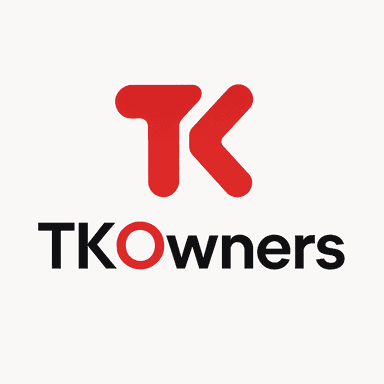Overview / Executive Summary
Here’s a wild thought: you can fold other people’s laundry and make $500 a week. That’s not a joke. That’s exactly what one mom did. She posted in local Facebook groups three times and now clears near-pure profit weekly without leaving her house. The kicker? She found the rest of her clients through an app that’s basically Uber for laundry. With zero special skills and barely any overhead, this business taps into a massive market of busy people who are more than happy to pay someone else to fold their towels.
Value Proposition
We’re not selling laundry. We’re selling time. The value here is clear:
Convenience for customers who hate folding and love outsourcing
Flexible, local service that’s faster and cheaper than commercial laundry options
Consistent, affordable pricing for people who want weekly help
Reliable side income for people who have two hands, a washing machine, and Wi-Fi
This is the lowest-overhead, lowest-barrier service business you can start without a storefront, staff, or anything resembling a business degree.
Target Audience
Who It’s For
Busy professionals who don't have time to fold their clothes
Parents juggling kids, jobs, and never-ending laundry piles
Elderly or disabled individuals who physically can’t manage folding
Students and renters who want clean, folded clothes but don’t want to do it themselves
Dual-income households with more disposable income than time
What They Need
Someone trustworthy to handle their clothes
Simple, consistent pricing
Easy communication and flexible pickup or drop-off
Results that don’t feel like they hired a stranger off Craigslist
We’re not solving a luxury problem. We’re solving a daily, universal one: laundry sucks.
Market Landscape
Industry Snapshot
The global on-demand laundry market is worth $37.3 billion in 2025, projected to hit $221 billion by 2030
The broader laundry services market (including dry cleaning) is valued at $80 billion, headed to $120 billion by 2033
Growth is fueled by busy lifestyles, more dual-income households, and gig-based outsourcing
Competition
Major platforms like Rinse, ByNext, and Delivery.com dominate urban areas
Smaller solo operators like our Facebook mom thrive by being cheaper, friendlier, and faster
Gig apps offer reach but take a cut, while private clients mean higher margins and better relationships
This is a high-demand service with very few barriers to entry and nearly unlimited customization.
SEO Opportunities
The keyword demand is both practical and underserved. People are actively searching for:
“Laundry folding service near me”
“On-demand laundry pickup”
“Help with laundry folding at home”
“Laundry folding side hustle”
“Uber for laundry”
With basic blog content (laundry tips, folding hacks), location-specific landing pages, and video testimonials, we can rank and convert searchers without spending on ads.
Go-To-Market Strategy
Step 1: Start with Facebook and Friends
Post in local Facebook groups offering folding services with your availability and pricing
Offer to fold for friends and family in exchange for testimonials and referrals
Collect before/after photos of folded laundry (yes, this sells)
Step 2: Expand Through Gig Apps and Referrals
Register on platforms like LaundryCare or Poplin
Offer pickup and drop-off in your area with simple scheduling
Launch a referral program: $10 off for both referrer and referred
Step 3: Systematize and Grow
Create a simple website with pricing, contact info, and reviews
Use Google My Business to show up in “laundry service near me” results
Consider light branding name, logo, branded laundry bags sfor professional appeal
Your first 10 customers come from Facebook. Your next 100 come from doing a good job and being easy to find.
Monetization Plan
Revenue Streams
Per-load pricing: $10 per laundry load folded
Per-item pricing: $1 per item (shirts, pants, towels)
Weekly subscriptions: $100/month for 4 weekly pickups
Pickup and delivery: $10–$15 per trip
Add-ons: Ironing, stain treatment, folding fitted sheets (which some people genuinely hate)
Margins are high. Customers provide the clothes. You provide clean hands and a little organization.
Financial Forecast
Year 1 Estimate (Solo Operator, Part-Time)
Startup Costs: $200–$1,000 for detergent, bags, branding, and marketing
Clients per week: 5 regulars at $100/week each
Monthly Revenue: $2,000
Monthly Expenses: $400 (fuel, supplies, taxes)
Net Profit: $1,600/month
Annual Profit: ~$19,000 part-time
If you go full-time, hire help, or scale via gig platforms, this can push $40K–$60K per year. Still solo? Still profit.
Risks & Challenges
Burnout: Folding laundry all day can get repetitive. Know your limits.
Time management: Multiple clients and pickups can get messy without scheduling tools
Client acquisition: You need to consistently market if you want to grow
Quality control: Consistency matters. If you fold sloppily, they won’t rebook
Trust issues: You’re handling people’s clothing. Build credibility through testimonials, not silence
Most risks are easy to solve with structure and communication. Don’t overpromise. Don’t underdeliver.
Why It’ll Work
The idea is simple. The demand is real. And the execution is wide open. With just a few Facebook posts and a basic work ethic, one mom built a $500-per-week cashflow stream folding socks. You can too. The key is keeping it small, tight, and customer-friendly. No fancy tech. No office lease. Just a few laundry baskets, a consistent schedule, and happy clients who don’t want to do their own folding.
You don’t need a business plan to start this. But now you have one.
